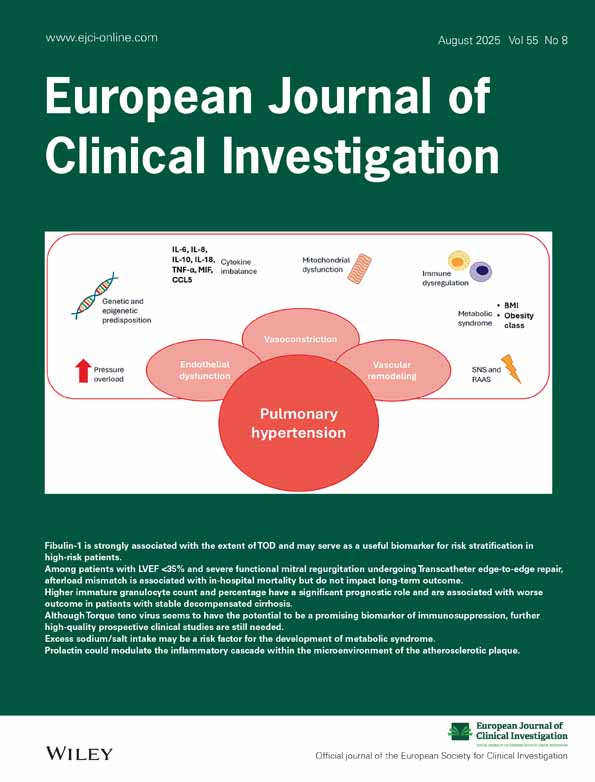Tamm Horsfall glycoprotein interferes with bacterial adherence to human kidney cells
Abstract
Abstract. The effect of Tamm Horsfall protein (THP) of 18 healthy subjects and 14 diabetics on adherence of Escherichia coli (06:K13) 2699 strain to human kidney cells (HUK) was studied. Adhesion of bacteria (without additions: 100 bacteria per cell) was reduced dose-dependently by THP, half maximal inhibition occurring with 250 μg THP ml-1. Maximal inhibition (– 84% at 1000 μg ml-1) exceeded inhibition by alphamethyl-mannoside (36% at 50 mM), was specific (not reproduced by other glycoproteins, e.g. ovalbumin, mucin or thyroglobulin) and reversible (abolished by washing THP off HUK cells). Anti-adherence property of THP was not abolished by neuraminidase treatment. No significant difference of anti-adherence activity of THP was found between controls and diabetics, despite altered carbohydrate composition of THP in diabetes.




